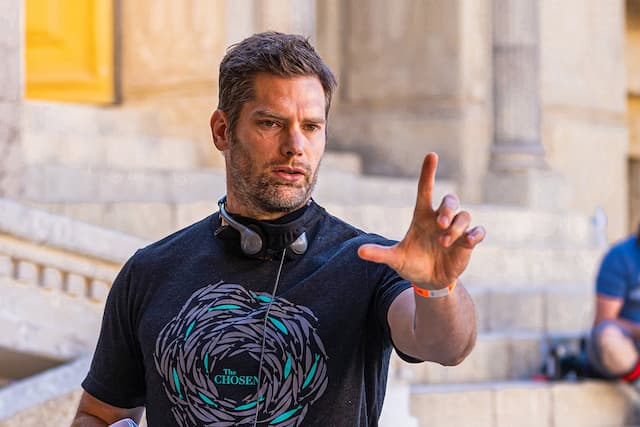Why Wait?
No one likes to wait. Not the mother about to give birth, not the athlete recovering from an injury, and not the soldier whose life has been put on hold while he waits for his next assignment. But while this aversion to waiting is indeed worldwide, it is perhaps we Americans who detest waiting the most. And little wonder; because with instant coffee, fast food restaurants, and even high-speed internet this aversion to waiting is not at all surprising!
In fact, the problem may be getting worse and not better; inasmuch as young people today—hooked by fast, flashing visuals—will sit with wide-eyed fascination playing video games but are repelled by any summons to sift, weigh, and ponder. There are some people who get a little testy if they have to wait a minute more at the drive-in window. I guess the franchise that figures out how to fling burgers to driving motorists will get their business!
If you’re familiar with the Road Runner cartoon show, you well remember how this lanky bird keeps whizzing by with “beep, beep” sounds as he escapes yet another attempt by Wiley Cayote to trap him.
Unfortunately, the Road Runner icon very accurately depicts the modern lifestyle we have come to adopt. A flash of energy here, a burst of speed there, and he’s off, “beep beeping” everyone out of his way! For this bird, there isn’t the first thought about slowing down. Instead, he does a fast U-turn and starts “beep beeping” once again as he now takes off in another direction.
We laugh at the Road Runner because in such a comedic way he reminds us of ourselves. We know what it’s like to go racing through life at breakneck speed and to be involved in our share of near catastrophes. Just like the Road Runner, we, too, have yet to slow down, or to worry what may await us at the next turn in the road. But could it be that comedienne Lily Tomlin had it right— “For fast acting relief, try slowing down”?
One of the disadvantages of our fast-paced lifestyle is that it doesn’t prepare us for a more contemplative life. Thinking that busyness leads to success and that activity is a sign of life, we can’t stand being sidelined, no matter what the reason. These imposed times of prolonged waiting affect us like a “detox” center affects a drunk. The life of busyness and boldness offers an enormous attraction to us; the life of waiting and wanting does not.
We would have to admit that there is a fair amount of arrogance built into our fast-paced lives. The very idea that we have mastered life so well we can race through it at blinding speed! Whatever made us think that we could leave God in the dust and peel out to enter the fast lane of life?
Vance Havner said it well: “He who waits on God loses no time.” You may think time is fleeing and carrying needed opportunity with it, but it’s really a failure to wait on God that results in a significant loss of time. Dr. Arthur T. Pierson acknowledged as much when he wrote: “… many sincere disciples fail, prone to be impatient of delay when making decisions. Impulse too often sways, and self-willed plans betray into false and even disastrous mistakes. Life is too precious to risk one such failure.”2
From God’s perspective, there must be an extraordinary value in waiting, because down through the years he has caused men to wait and wait and wait. At the time of man’s fall, for example, God promised a Savior. But did the Savior come right away? No, decades went by, centuries went by, millennia went by—and still there was no Savior! In fact, the four centuries that separated the Old Testament from the New Testament didn’t even have a prophet! And then, when the Savior finally did come, he, of all things, came as a baby! So still the world had to wait!
Twelve years later—when Jesus was heard to say, “I must be about My Father’s business”—some may have thought the waiting was over. But, no, the waiting wasn’t over, for Jesus soon returned to the carpenter shop; and, get this, he wasn’t heard from again for another eighteen years! This is simply amazing! Instead of preaching the gospel and healing the sick, the Son of God sawed planks and hammered nails. Why did he do this? Didn’t he understand the desperateness of the situation?
In his book, Sodom Had No Bible, Leonard Ravenhill writes:
Who, but the blessed Jesus could have stood ankle deep in wood shavings—silent and inactive amid oppression, extortion and corrupt religion? Who but Jesus could have kept unbroken silence while eager, strict men, mourning for the delayed arrival of the Son of David, made their loud lamentations at the Wailing Wall?
How often in those years did Jesus visit the temple and, glancing at his Father’s eye, wait patiently for a sign amid bane animal sacrifices, that he might declare himself the Son of God with power?
In a book titled, The Ideal Life, Henry Drummond extended contemplation of the Messiah’s waiting by describing this stage in the Galilean’s life with these words:
He saw the poor trodden upon, the sick untended, the widow unavenged, his Father’s people scattered, his truth misrepresented, and the whole earth filled with hypocrisy and violence. He saw this, grew up amongst it, knew how to cure it. Yet … he opened not his mouth.
The restraint upon Jesus during these years wasn’t there because of a lack of willingness or shortage of courage. It was there due to our Lord’s immense regard for the Father’s timing.
In Psalm 62:5, David said, “Wait silently for God alone.” There is all the difference in the world between waiting, and waiting on the Lord. A lot of people, for a multitude of reasons, have been put on the sidelines of life. The mere passage of time, however, doesn’t constitute a biblical waiting. The clock and calendar can tick and turn, but it won’t be a biblical waiting unless it thrusts us into an intensive intimacy with God.
Notice that last word “alone.” This means we must rule out a double focus, wherein both God and some other attractive plan B fallback option are in view. If a diversion of focus exists in our life, not only will our waiting upon the Lord become less intensive, but it will become less extensive—and in the end it will become more expensive, since our waiting must now be extended. The dynamic of waiting only upon the Lord simply will not occur unless God is Plan A, and Plan B doesn’t exist!
In his book, Seeing the Invisible, A.B. Simpson pointed out: “These waiting years are the most fruitful seasons of our experience … with which he trains us to keep the balance both of expectation and patience—not passive but not impulsive, earnestly longing … yet calmly resting in his perfect wisdom and love.” In doing all this, the self-life is mastered and the Lord’s life is released to rule.
Horatius Bonar, the Scottish preacher and poet, said, “God’s processes are not always rapid. His greatest works rise slowly. Swiftness of growth has been one of man’s tests of greatness; not so is it with God. His trees grow slowly; the stateliest are the slowest.
Andrew Murray, a contemporary of Bonar, spoke similarly, “The greater a work is that a man undertakes, the more important is the preparation.”
Even in nature we find this principle. A macadamia tree takes 5 years to produce nuts, but then it produces nuts for the next 100 years. A Chinese bamboo tree takes five years and five weeks to sprout from the ground, but then in the next five weeks it grows 90 feet tall.
Quite aware of this principle, F.B. Meyer wrote: “Let us never forget that the soul discipline through which we may be passing is carefully designed to make us meet for the Master’s use, and to prepare us to deliver a definite message with the profound sympathy and understanding of personal experience.”
God is an excellent steward of our days of waiting. He sets his loving eyes upon us, intent that we receive maximum blessings, which he is very careful to calculate and will gently and generously bestow.











